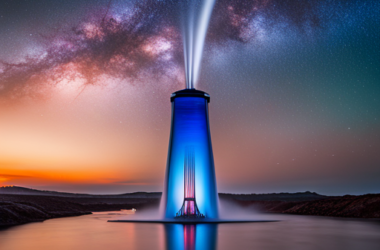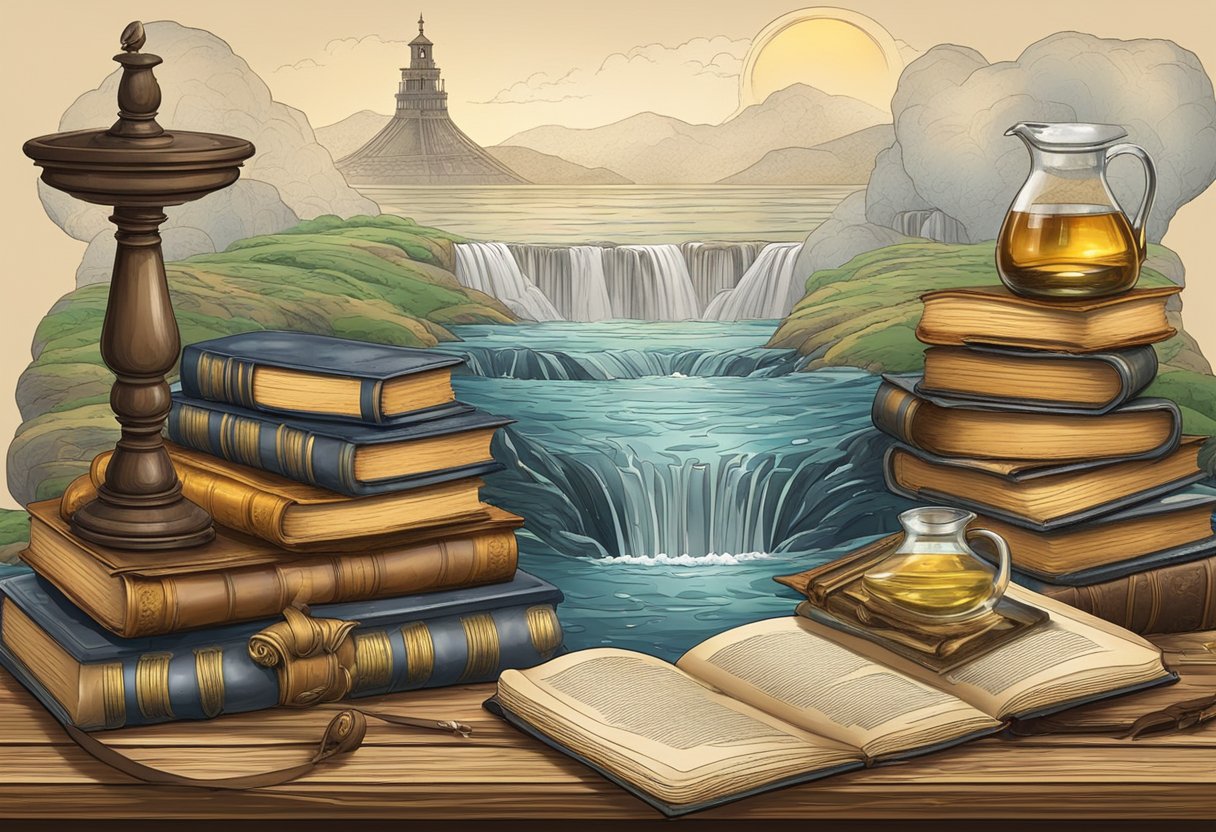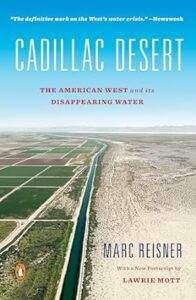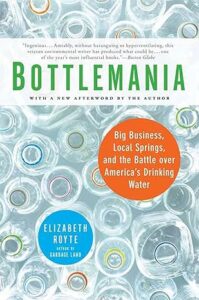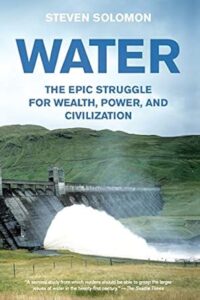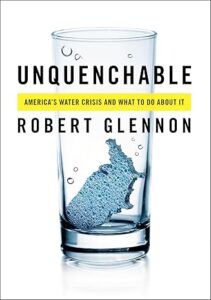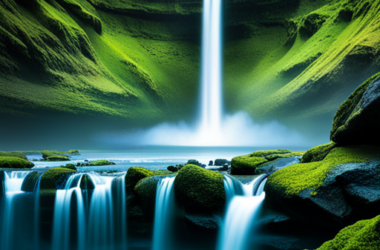Update Notice!
This Article Was Updated on 10/12/2024
Water shapes our world in many ways, yet its story often goes untold. Diving into the history of water reveals not just facts, but the profound impact this vital resource has had on civilizations, politics, and the environment. By exploring the best books on this topic, readers can gain insights into the complexities of water’s role throughout human history.

From ancient aqueducts to modern water management, understanding water’s legacy can deepen my appreciation for this essential resource. Whether I am a history buff or simply curious about the world around me, these books offer compelling narratives that illustrate the challenges and triumphs tied to water.
What Is the Best Book on the History of Water? THE BEST IS HERE
I’ve read the top book on the market, and The Water Knife by Paolo Bacigalupi stands out as one of the best. Read on to discover my other top picks.
1. The Water Knife by Paolo Bacigalupi
I find “The Water Knife” to be a gripping look at the struggles over water resources in a future shaped by climate change. Paolo Bacigalupi sets the story in a distressed American Southwest, where drought has led to fierce battles over water rights. The novel centers on Angel Velasquez, a “water knife” who works to secure access to water for the powerful.
As tensions rise between cities like Phoenix and Las Vegas, the story highlights the desperation that comes with scarcity. Readers gain insight into the harsh realities of a water-deprived world, shedding light on how commerce and survival impact the environment. Bacigalupi’s writing creates a vivid picture of a society on the brink.
“The Water Knife” is not just fiction; it serves as a sober warning about our future if we fail to address water issues now. This book is essential for anyone interested in the history and politics of water.
2. Cadillac Desert by Marc Reisner
“CadiIac Desert” is a significant work on the history of water in the American West. Marc Reisner explores the complex stories surrounding water policies and land development. The book illustrates how settlers were drawn to the promise of fertile land. It also discusses the actions of politicians and businesses in Los Angeles to fuel growth.
Reisner delves into the rivalry between federal agencies like the Bureau of Reclamation and the U.S. Army Corps of Engineers. Their efforts to manage water resources shaped the landscape and economies in the West. This book sheds light on the economic battles over water rights. It highlights the environmental impact of these water management strategies, making it a crucial read for anyone interested in water history.
Through detailed research, Reisner presents the paradox of creating an “Eden” that may ultimately be a mirage. “Cadillac Desert” is not just a history lesson; it serves as a warning about the looming water crisis.
3. Bottlemania by Elizabeth Royte
“Bottlemania” is a significant book that explores the rise of bottled water in America. Elizabeth Royte dives into the marketing strategies that made bottled water a popular choice for consumers. The book discusses how companies convinced people that bottled water is cleaner and better than tap water.
Royte also highlights the environmental costs of this convenience. One key aspect of “Bottlemania” is its focus on the local springs used for bottled water. The book examines how these natural resources are affected by commercial interests. Royte’s writing is engaging and informative. She presents complex topics about water use and resource management in a way that’s easy to understand.
Readers interested in consumer habits and environmental issues will find this book particularly enlightening. “Bottlemania” provides a critical look at what we drink and the implications of those choices.
4. Water by Steven Solomon
“Water” by Steven Solomon is a significant exploration of the role of water in shaping human history. This book discusses how access to freshwater has become a critical factor in wealth and power throughout civilizations. Solomon traces the development of societies in relation to their control of water.
He argues that those who manage water resources effectively are often leaders in innovation and progress. The book emphasizes that water scarcity is a growing concern in today’s world, much like past struggles for oil. Solomon draws on historical events to show how water has influenced geopolitics and economics over time.
Readers can expect to gain deep insights into how vital water has been in the rise and fall of empires. This work ultimately serves as a call to recognize the impending challenges related to water availability and management today.
5. Unquenchable by Robert Glennon
“Unquenchable” by Robert Glennon is a critical look at America’s water crisis. Glennon explores how water is often wasted in various sectors, highlighting the urgent need for reform. The book uses real-world examples, like how Las Vegas resorts consume vast amounts of water for entertainment.
This points to the contradictions in water usage across the country. Glennon mixes humor with serious observations, making the grim topic more relatable. His anecdotes serve to emphasize the irony of a water-rich nation facing shortages. The writing is clear and engaging, making complex issues easy to understand.
Readers will find valuable insights into the challenges we face regarding water conservation. “Unquenchable” isn’t just informative; it encourages action. It serves as a wake-up call for both individuals and policymakers to take water issues seriously.
The Evolution of Water Management
 Water management has changed significantly over time, shaping how societies utilize this vital resource. From ancient civilizations developing complex systems to modern infrastructure innovations, the way we manage water reflects our growing needs and technologies.
Water management has changed significantly over time, shaping how societies utilize this vital resource. From ancient civilizations developing complex systems to modern infrastructure innovations, the way we manage water reflects our growing needs and technologies.
Ancient Civilizations and Water Systems
In ancient times, water management was essential for agriculture and survival. Civilizations like the Sumerians in Mesopotamia created intricate canal systems around 6000 BC to control seasonal flooding and drought. They built dikes, reservoirs, and irrigation channels to direct water to crops efficiently.
The Indus Valley Civilization also developed sophisticated drainage systems and wells around 2600 BC, highlighting the importance of clean water. Structures like aqueducts in Rome further showcased advanced engineering to bring water to urban areas. These ancient systems laid the groundwork for future water management practices.
Medieval Advances in Water Use
During the medieval period, water management saw notable progress. Innovations like windmills and watermills improved irrigation and enhanced grain processing. In Europe, cities began establishing public fountains and aqueducts that supplied water to larger populations. The Islamic Golden Age introduced advanced techniques, such as qanats, which harvested underground water for agriculture and consumption.
These systems allowed diverse landscapes to thrive, influencing irrigation practices across regions. Many medieval societies recognized the need for clean water, leading to early regulations on water use and waste. This era marked a shift towards organized water management in communities.
Modern Water Infrastructure
Today’s water management systems are more complex and technologically advanced. Modern infrastructure includes water treatment plants, reservoirs, and extensive pipe networks that deliver safe drinking water to millions. The focus has shifted to sustainability and conservation, with techniques like rainwater harvesting and greywater recycling becoming more common. Smart technology, using sensors and data analysis, optimizes water usage and detects leaks in real-time.
Urban areas face challenges such as pollution and increasing demand, leading to innovative solutions in stormwater management and water reuse. Continued investment in infrastructure is vital for meeting future water needs.
Cultural Significance of Water
 Water holds deep cultural meaning across various societies. It influences religious beliefs, artistic expressions, and daily rituals. These unique perspectives show why water is more than just a resource.
Water holds deep cultural meaning across various societies. It influences religious beliefs, artistic expressions, and daily rituals. These unique perspectives show why water is more than just a resource.
Religious and Spiritual Roles
Water often symbolizes purification and rebirth in many religions. In Christianity, baptism signifies cleansing from sin. Hinduism views the Ganges River as sacred, representing spiritual healing. Many Indigenous cultures perform rituals using water to honor ancestors and the Earth. In various traditions, water is believed to connect us with spiritual realms.
It is used in ceremonies for blessings, healing, and protection. Sacred springs and lakes attract pilgrimage, showcasing their spiritual significance. This deep-rooted symbolism reveals water’s role in connecting with the divine.
Water in Art and Literature
Water is a powerful theme in art and literature. Artists use water to convey emotions like tranquility, chaos, or reflection. For example, Impressionist painters like Monet captured the beauty of water in their works. In literature, water often represents life’s journey or emotional states. Authors like Hemingway and Thoreau used water as a backdrop for their characters’ struggles and growth.
From poems to novels, water serves as a metaphor for change, continuity, and the human experience. This rich portrayal highlights water’s significant impact on creative expression.
Environmental Impact and Conservation
 Water has been central to human civilization, influencing health, industry, and ecology. My exploration of its history reveals both the changes in water quality over time and the various conservation efforts that have emerged in response to these challenges.
Water has been central to human civilization, influencing health, industry, and ecology. My exploration of its history reveals both the changes in water quality over time and the various conservation efforts that have emerged in response to these challenges.
Historical Changes in Water Quality
Throughout history, water quality has drastically changed due to industrialization, urbanization, and agriculture. In ancient times, many civilizations used natural water sources, which often stayed clean due to minimal human interference. However, as societies advanced, pollutants like waste and chemicals began to contaminate water supplies.
For instance, during the Industrial Revolution, rivers like the Thames were heavily polluted, prompting health crises. This led to the establishment of regulations aimed at improving water quality, such as the Clean Water Act in the U.S. in 1972. Understanding these shifts helps to recognize the ongoing challenges we face today regarding water access and safety.
Conservation Efforts Through the Ages
Conservation efforts have evolved over centuries in response to environmental degradation. Early initiatives often included local measures, like protecting springs and streams used for drinking water. As awareness grew, larger movements emerged, focusing on sustainable water use. In the 20th century, notable campaigns, like the establishment of national parks, highlighted the importance of preserving water sources.
Books like The Dreamt Land emphasize California’s water struggles and conservation efforts. Today, modern practices include rainwater harvesting, wastewater recycling, and stricter regulations on water usage. These efforts reflect a commitment to preserving this vital resource for future generations.
Frequently Asked Questions
 Here are answers to common questions about the history of water and recommended readings. These questions cover various aspects, including management, global history, ancient civilizations, industrial development, political history, and cultural significance.
Here are answers to common questions about the history of water and recommended readings. These questions cover various aspects, including management, global history, ancient civilizations, industrial development, political history, and cultural significance.
What are some critically acclaimed books on the history of water management?
One notable book is Cadillac Desert by Marc Reisner. It examines the history of water management in the American West and how it has shaped the region’s development.
Can you recommend comprehensive texts covering the global history of water?
Water by Steven Solomon is an excellent choice. It offers a detailed look at global water issues, tracing the history of water from ancient times to current challenges.
Which books offer detailed insights into the impact of water on ancient civilizations?
I recommend Unquenchable by Robert Glennon. This book examines how water availability shaped ancient societies and continues to influence modern civilizations.
Are there authoritative sources on the role of water in industrial development?
Bottlemania by Elizabeth Royte explores the rise of bottled water. It discusses the industrial aspects of water use and its effects on the environment and society.
I’m looking for well-researched books on the political history of water – any suggestions?
The Water Knife by Paolo Bacigalupi provides insight into water rights and politics. It paints a vivid picture of the struggle for water in a future where resources are scarce.
What are the must-read books for understanding the cultural significance of water through the ages?
A strong pick is Water: A Biography by Giulio Boccaletti. This book explores how water has influenced cultures around the world, shaping societies and histories over time.
